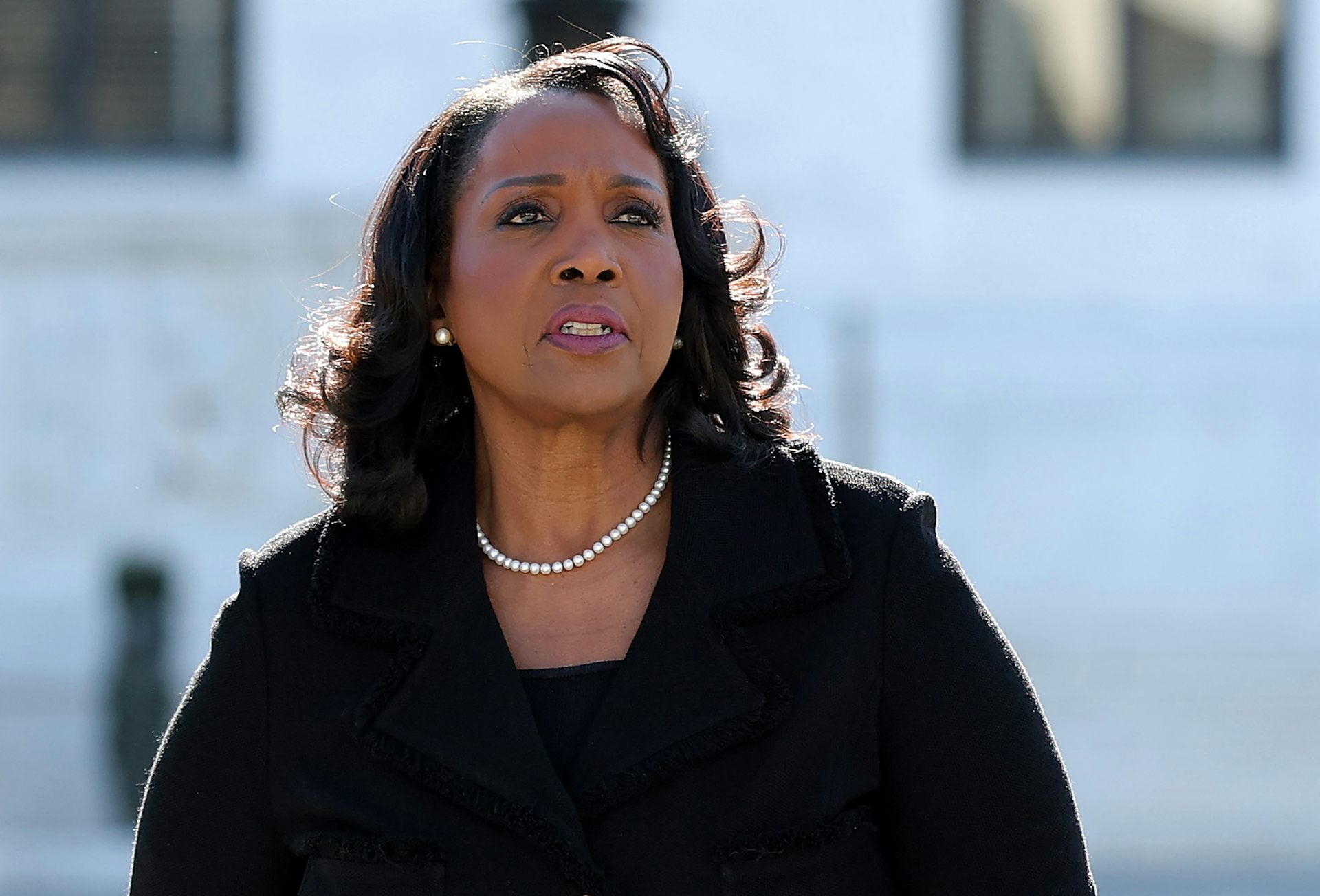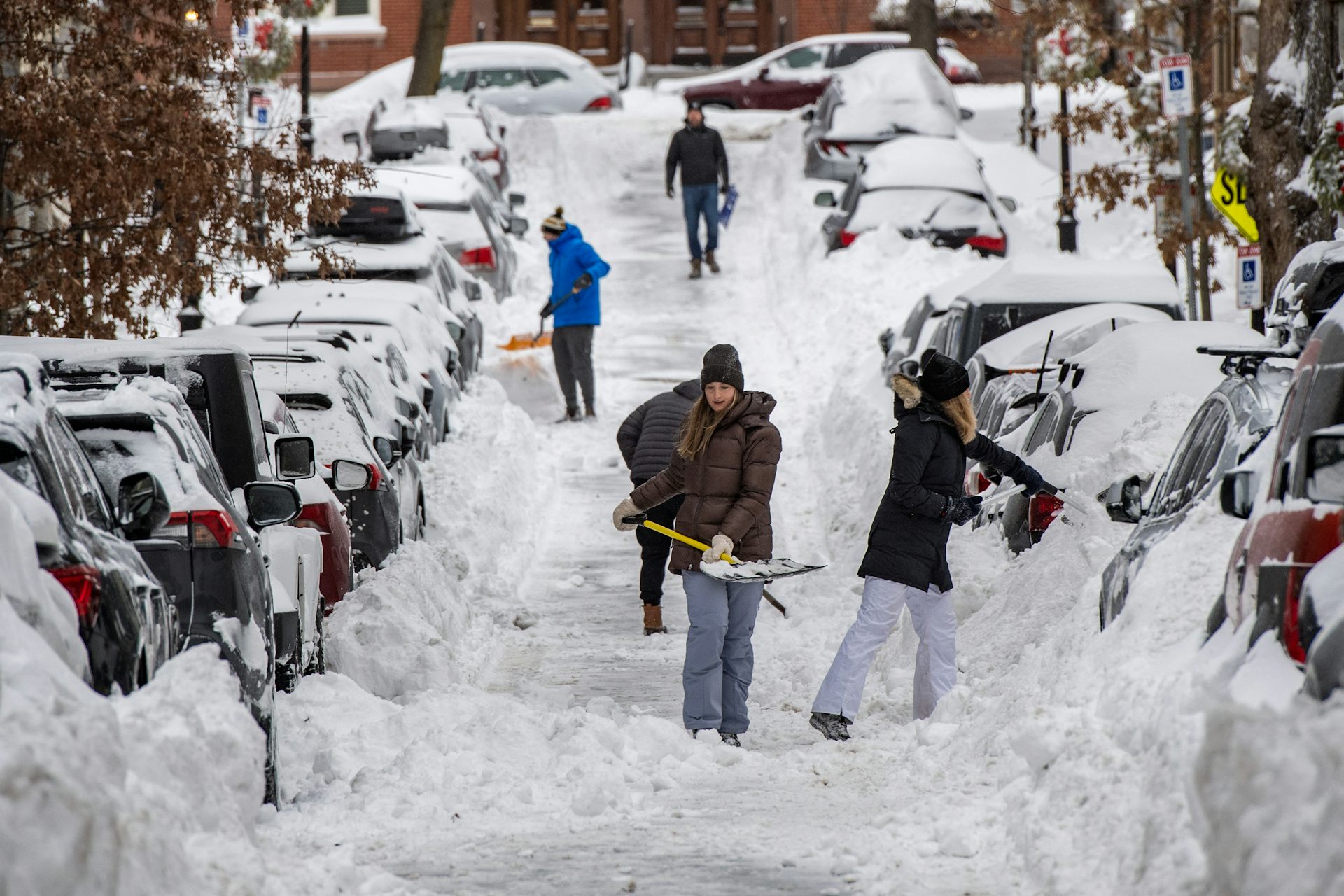Using lies and disinformation, Putin and his team have been building the case for a Ukraine invasion
Putin’s rationale for invading Ukraine wasn’t built over just a few months in 2021. Putin and high-level Russia government staff have been trash-talking Ukraine for more than a decade.
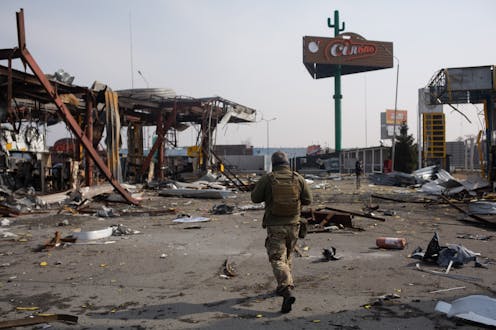
As the invasion of Ukraine began in late February 2022, President Vladimir Putin offered several justifications for why Russia had no other option.
First: Russia needed to fight the rise of fascism and neo-Nazism by demilitarizing Ukraine. According to Putin, Ukrainian leaders, including the country’s democratically elected Jewish president, Volodymyr Zelenskyy, were a bunch of neo-Nazis and drug addicts holding Ukraine hostage.
Second: Russian intervention would prevent the alleged genocide of Russian speakers in eastern Ukraine.
Third: Russian intervention would ensure that Ukraine does not join NATO, a military alliance that Russia views as an existential threat.
While those statements may seem strange and outlandish, Putin has been laying the rhetorical groundwork for an invasion of Ukraine along these lines for years.
Russian rhetoric – the language Russian officials use – toward Ukraine has changed over the past two decades from establishing a strategic partnership with Ukraine to delegitimizing Ukraine’s government. This was done by making unsubstantiated accusations of atrocities, false accusations of the rebirth of fascism, and blaming the West and neo-Nazis for escalating violence in Ukraine.
With hindsight, Russia’s statements should have triggered warning bells.
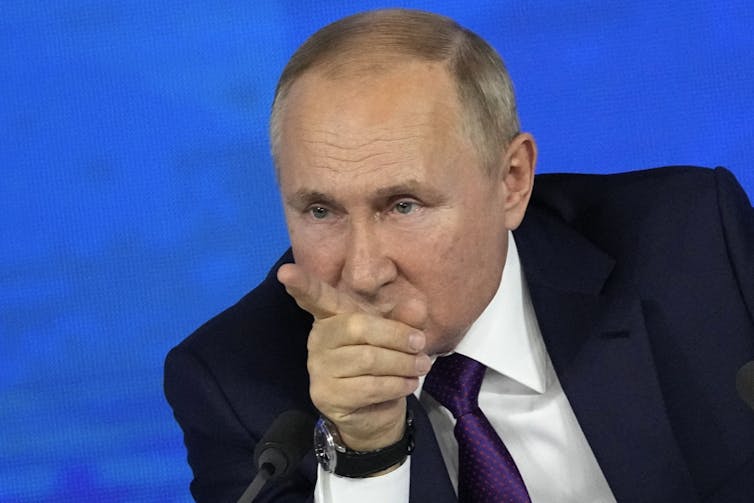
From cooperation to badmouthing
As researchers specializing in international relations, diplomatic communication and conflict, we investigated how Putin, key Russian diplomats and the Russian Ministry of Foreign Affairs built these strategic stories. Our research using several types of documents and information, including press releases and statements by Russian officials, outlines a Russian effort that started over 14 years ago.
We traced Putin’s rationale for invading Ukraine as far back as 2008, more than a decade before the current invasion. In one statement on Sept. 11, 2008, the Russian Ministry of Foreign Affairs alleged Ukrainian attempts “to heroize the accomplices of fascism,” violate “the rights of Ukraine’s Russian-speaking population” and “oust the Russian language from the public life of the country, science, education, culture and the mass media.”
Our findings indicate that the world should listen when Russia starts trash-talking other countries. Similar accusations and storytelling were used about Georgia before Russia’s invasion of that country in 2008.
While the accusations are false and become pillars of dis- and misinformation campaigns, these repeated Russian claims appear to potentially foreshadow Russian aggression and intervention in neighboring countries.
In a period that has been largely forgotten, Russian-Ukrainian relations were largely defined by Russian attempts to build a strategic partnership with the neighboring country before 2013. Negotiations led to cooperative approaches for handling military threats and conflict in neighboring regions. Russian Foreign Minister Sergey Lavrov asserted on Sept. 23, 2005, that there was “a common striving to continue seeking to improve the atmosphere in Russian-Ukrainian relations.”
However, tensions rose between 2008 and 2010 when Russia began voicing concerns about anti-Russian sentiment in Ukraine and alleging a rebirth of fascism. On June 25, 2008, the Russian Ministry of Affairs publicly stated that it was “astounded” that the Ukrainian government sympathized with Nazis: “Extolling the Nazi accomplices is inadmissible. It defiles the memory of the millions of people of many countries and nationalities who died in the struggle against fascism.”
But the rhetoric of strategic partnership largely returned between 2010 and 2013.
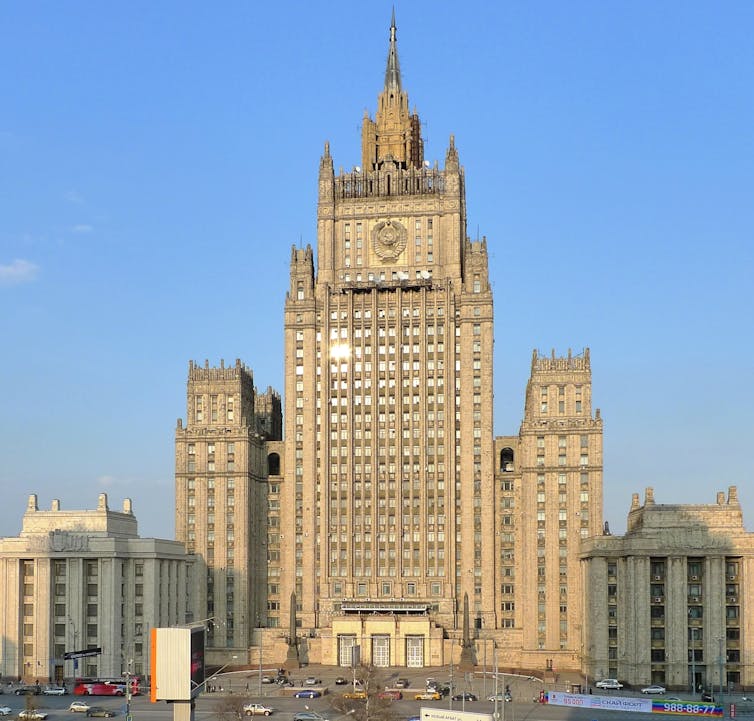
Russia’s thwarted plan
Russia’s strategic partnership efforts, in part aimed at keeping Ukraine close to Russia and distant from Europe, seemed to be working. In 2013, Ukraine’s leaders reversed the country’s political course and rejected an agreement that would have fostered closer political and economic ties between Ukraine and the European Union.
But this reversal triggered large-scale citizen protests and civil unrest. They culminated in the Ukrainian government killing protesters and Ukrainian President Viktor Yanukovych – long-considered a puppet of Vladimir Putin – fleeing the country to Russia. New government elections were held and in 2014, the previously rejected Association Agreement was signed that aimed to build closer political, financial and economic ties between Ukraine and the European Union.
During this period of turmoil, Ukrainian citizens protested Russian influence over the country and lack of progress in forging relations with Europe. In response, Russia alleged that Western powers were supporting rising far-right extremism, fascism and Nazism in Ukraine. Russia also falsely claimed the alleged rise of extremism was linked to biased Russophobic media in Ukraine.
When protests erupted in Kyiv in 2014 following the initial abandonment of the Association Agreement with the EU, Russia’s ambassador to the U.N., Vitaly Churkin, referred to protesters as “fascist-inspired radicals.”
The turmoil spiraled into the outbreak of armed conflict by pro-Russian separatists in eastern Ukraine and Russia’s annexation of the portion of Ukraine known as Crimea in 2014.
At that point, Russia sought to delegitimize the Ukrainian government again by castigating it for alleged atrocities, including “massive deaths of civilians as a result of the punitive [military] operation of Kiev.” Russia repeatedly linked Ukrainian anti-Russian groups to fascism – one official statement referred to “The growing spread of the radical, primarily ultranationalist, neo-Nazi ideology.” Russia blamed the West for fueling the conflict, asserting that a grave humanitarian crisis was taking place in eastern Ukraine.
[Over 150,000 readers rely on The Conversation’s newsletters to understand the world. Sign up today.]
Russia also accused Ukraine of a campaign to promote anti-Russian sentiment, alleging on March 30, 2019, that Ukraine was targeting journalists and practiced “gross infringement on the rights of journalists and the freedom of the media.” Russia also charged that Ukraine was guilty of various human rights violations. Importantly, even though such claims have been thoroughly debunked throughout the years, Russian rhetoric remained mostly unchanged.
False claims justify a war
As Russian troops prepared to cross the Ukrainian border en masse on Feb. 24, 2022, Putin expanded on the anti-Ukrainian language that he had begun using over a decade before.
According to Putin, Ukraine was a fascist, neo-Nazi country propped up by the West, and he was seeking to “demilitarize and denazify” the country. Allegations of atrocities expanded into accusations of genocide of Russian speakers, as Putin also claimed, “We had to stop that atrocity, that genocide of the millions of people who live there and who pinned their hopes on Russia.”
Putin attempted to further delegitimize Ukrainian leaders by calling them “a band of drug addicts and neo-Nazis.” He blamed the West for the escalating tensions in Ukraine.
While many in the West were shocked at hearing Putin’s justifications for invasion, he has been remarkably consistent for more than a decade.
Juris Pupcenoks has received funding from the Latvian Ministry of Education and Science.
Graig Klein was previously a co-investigator on a grant funded by the United States Office of the Director of National Intelligence. The grant funded data collection for the FOCUSdata Project.
Read These Next
How the Supreme Court might protect the Fed’s independence by using employment law in Trump v. Cook
This is not a typical employment law case because Lisa Cook, a member of the Federal Reserve Board,…
Anti-ICE protesters are following same nonviolent playbook used by people in war zones across the wo
Americans are learning and doing the kind of work that civilians in war zones worldwide have done for…
Winter storms don’t have to be deadly – here’s how to stay safe before, during and after one hits
Winter storms create many hazards, from slick ice to freezing temperatures. People often underestimate…


